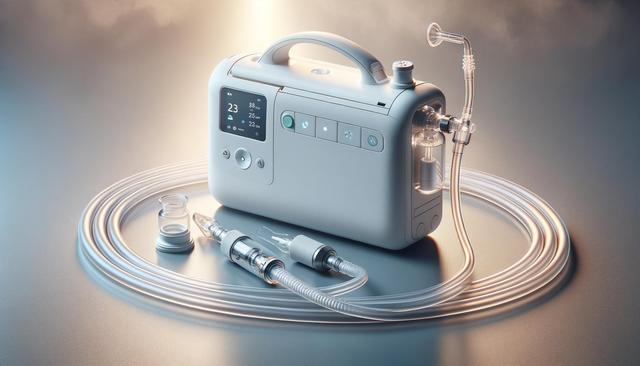What Is a Portable Oxygen Concentrator?
A portable oxygen concentrator is a medical device designed to provide supplemental oxygen to individuals with breathing difficulties. Unlike traditional oxygen tanks, which store a finite amount of compressed oxygen, these devices draw in ambient air, filter it, and deliver concentrated oxygen to the user. This makes them a lightweight and long-lasting solution for people with conditions such as chronic obstructive pulmonary disease (COPD), emphysema, or other respiratory issues. Their compact design and advanced technology allow greater independence and mobility compared to stationary systems.
These devices are powered either by rechargeable batteries or AC/DC power sources, making them suitable for use at home, during travel, or in outdoor settings. Many models are approved for in-flight use by airlines, offering convenience for those who need oxygen therapy while flying. Additionally, they come in different sizes and oxygen output capacities, so users can select a model that suits their specific medical and lifestyle needs.
Key Benefits of Using a Portable Oxygen Concentrator
Portable oxygen concentrators offer a range of practical and health-related benefits. One of the most significant advantages is the freedom they offer. Patients no longer need to be tethered to heavy, stationary tanks or worry about running out of oxygen while on the move. This translates into a more active and engaged lifestyle for many users.
Some of the primary benefits include:
- Increased independence and mobility
- Reduced risk of oxygen depletion during travel
- Quieter operation compared to older oxygen systems
- Lower maintenance requirements
- Rechargeable and long-lasting battery options
These devices also often come with user-friendly interfaces, alarms for low oxygen levels or battery, and customizable oxygen flow settings. All of these features contribute to a safer and more efficient therapy experience, enabling users to better manage their respiratory health.
How to Choose the Right Device
Selecting a portable oxygen concentrator involves considering various factors tailored to individual needs. It’s not a one-size-fits-all solution, and consulting with a healthcare provider is essential before making a decision. Factors such as prescribed oxygen flow rate, lifestyle, and frequency of travel all play a role in determining the right model.
Some considerations to keep in mind include:
- Oxygen delivery method (pulse dose vs. continuous flow)
- Battery life and charging options
- Weight and portability
- Noise level
- Ease of use and display features
It’s also important to check whether the device is approved for airline travel if flying is a frequent activity. For those who are active, a lighter model with a longer battery life may be more suitable, while others who need higher oxygen output may prioritize performance over portability. Understanding these aspects helps ensure the device not only supports medical needs but also complements daily routines.
Maintenance and Safety Tips
Maintaining a portable oxygen concentrator properly is crucial for ensuring optimal performance and long-term reliability. While these devices are designed to be low-maintenance, regular cleaning and inspections can help prevent issues and prolong the life of the equipment.
Here are some general maintenance and safety tips:
- Clean the external surfaces with a damp cloth regularly
- Check and replace filters according to the manufacturer’s schedule
- Ensure battery terminals are clean and properly connected
- Store the device in a cool, dry place when not in use
- Avoid using the device near open flames or while smoking
Following these tips not only keeps the device functioning well but also minimizes the risks of malfunction or safety hazards. Always refer to the user manual for specific maintenance instructions and consult with a technician or medical equipment provider if any issues arise.
Who Can Benefit From a Portable Oxygen Concentrator?
Portable oxygen concentrators are suitable for a wide range of individuals who require supplemental oxygen therapy. This includes people with chronic respiratory conditions, recovering patients, and even those who need temporary oxygen support due to illness or surgery. Depending on the severity and type of condition, these devices can be a valuable part of a comprehensive health management plan.
They are particularly beneficial for:
- Individuals with chronic lung diseases like COPD
- Patients recovering from respiratory infections or surgeries
- Older adults experiencing reduced lung function
- People living in higher altitudes needing oxygen support
- Travelers requiring oxygen therapy during flights or road trips
Because they offer both flexibility and reliability, portable oxygen concentrators are increasingly used not only in clinical settings but also at home and during travel. Their ability to help users maintain a more mobile and fulfilling lifestyle makes them a highly regarded choice among healthcare professionals and patients alike.


